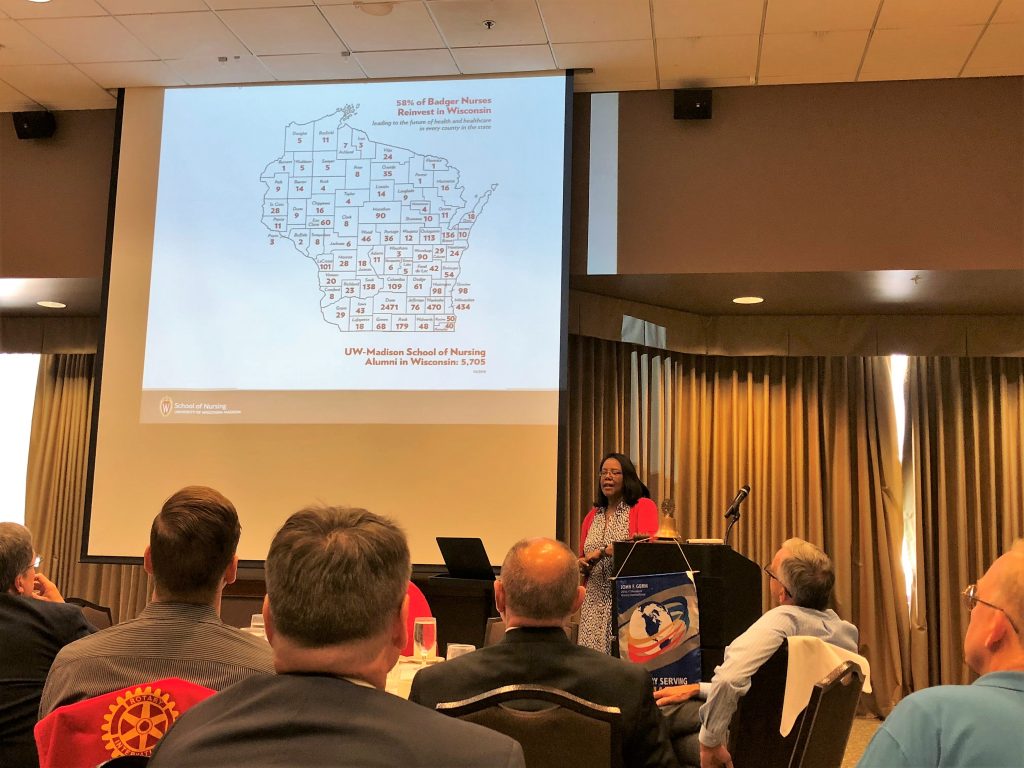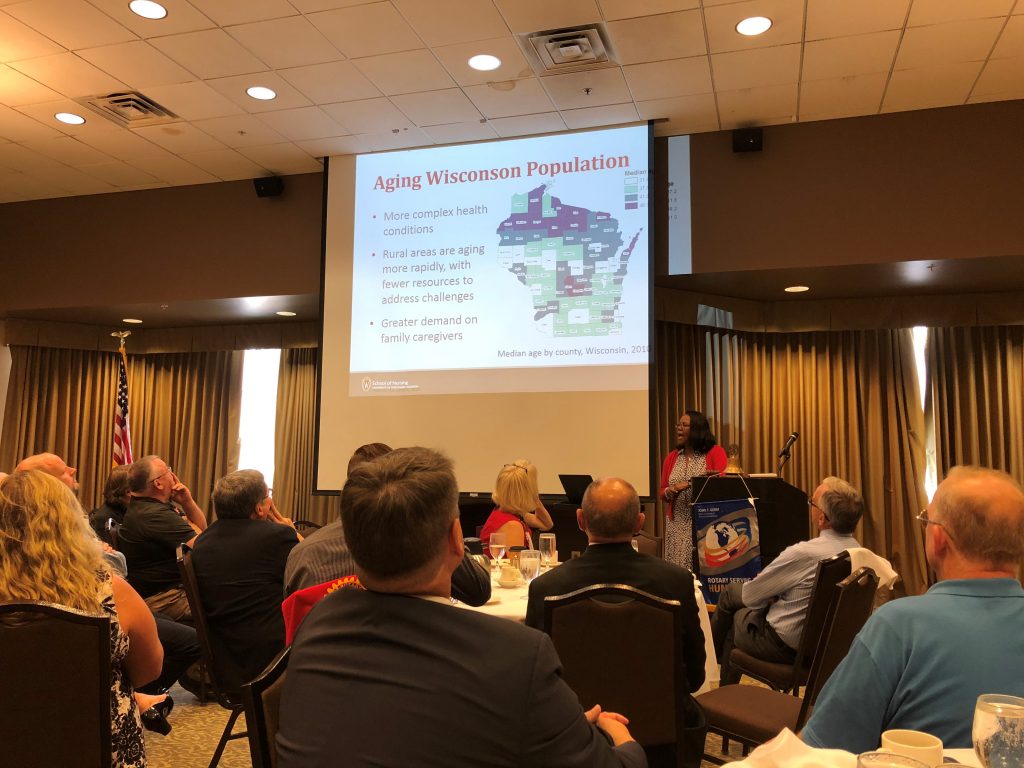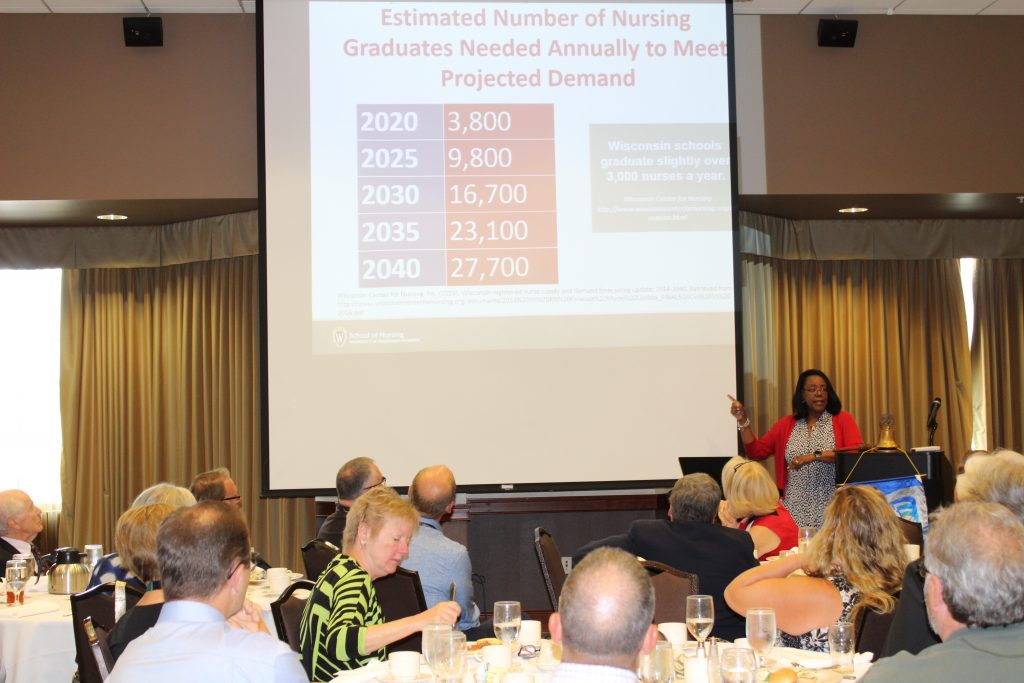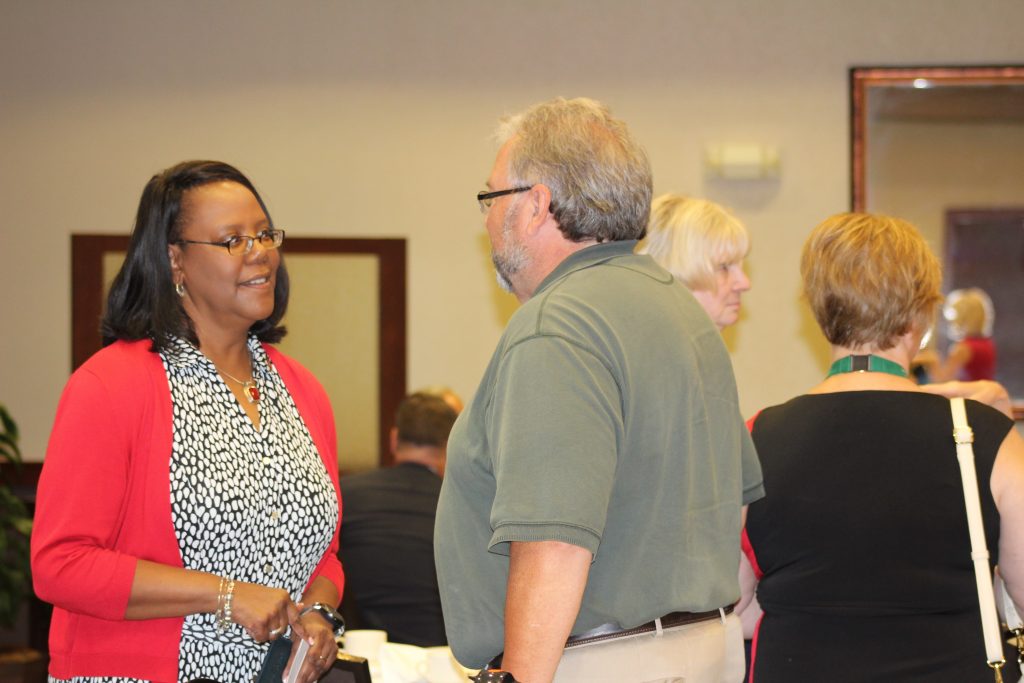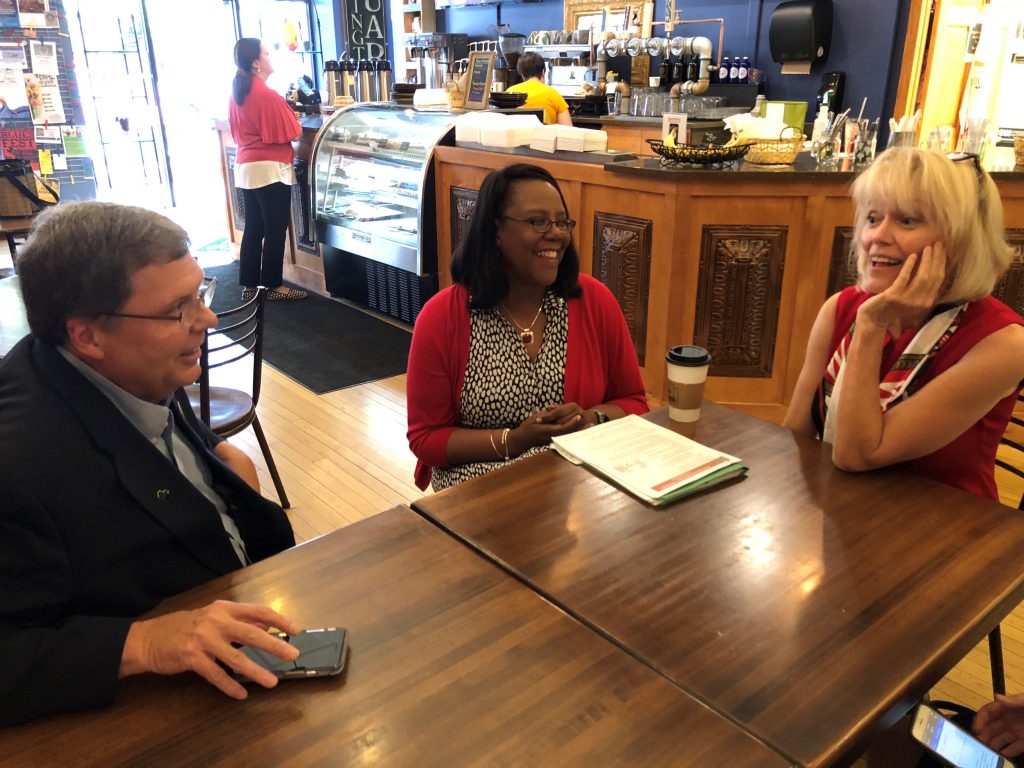Last week Dean Linda Scott of UW-Madison’s School of Nursing travelled to Wausau to discuss the school’s efforts to prepare for Wisconsin’s future nursing needs. Rotary Club of Wausau invited Dean Scott to their lunch meeting to discuss workforce trends in nursing and factors affecting health care needs around the state. Crystal Potts from UW-Madison State Relations was a part of the group and shared how interested this audience was in the efforts of UW to address the health care shortage, especially in their part of the state. The attendees received a handout outlining the details of the shortage, and policy solutions that assist in adressing the issue.
